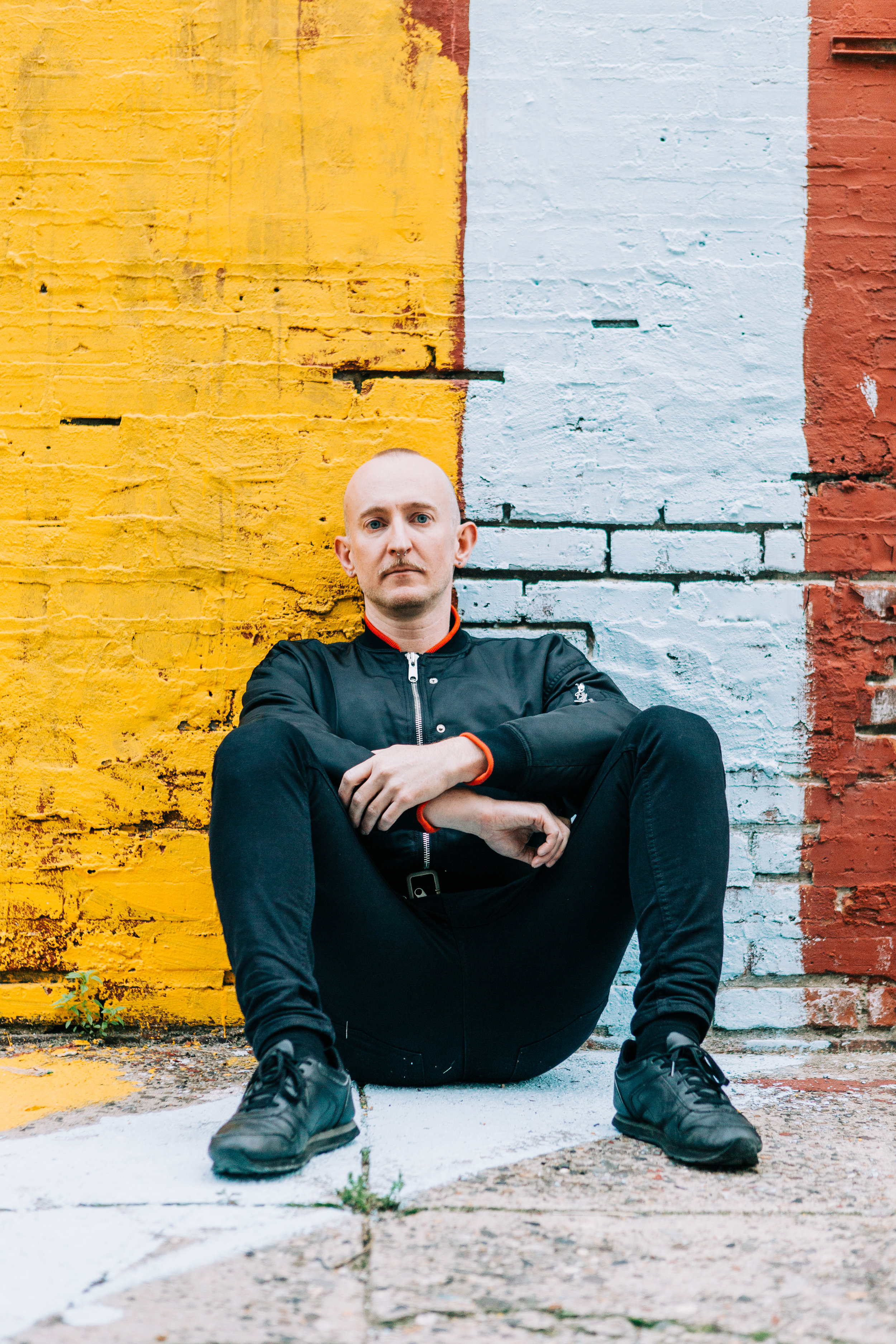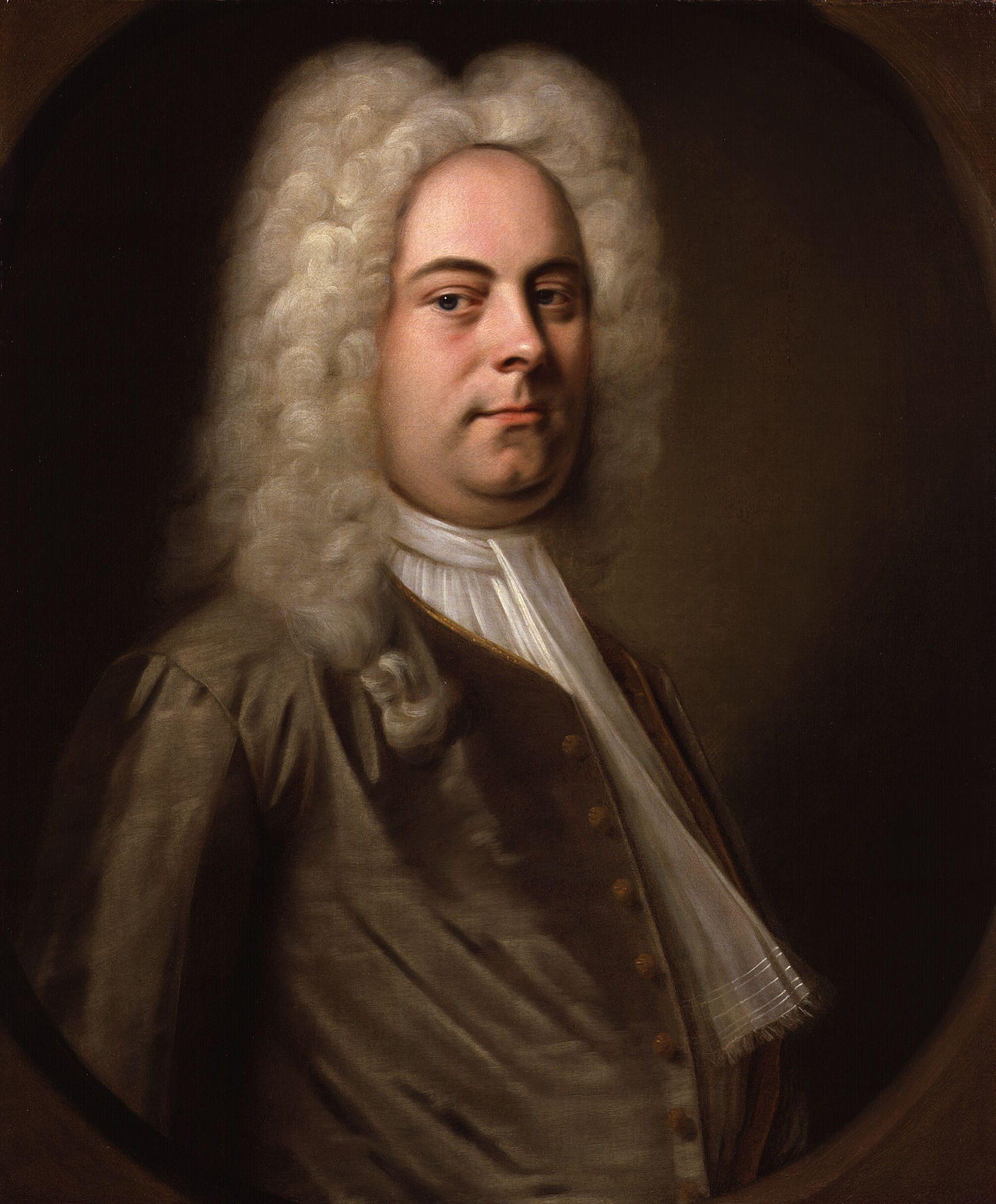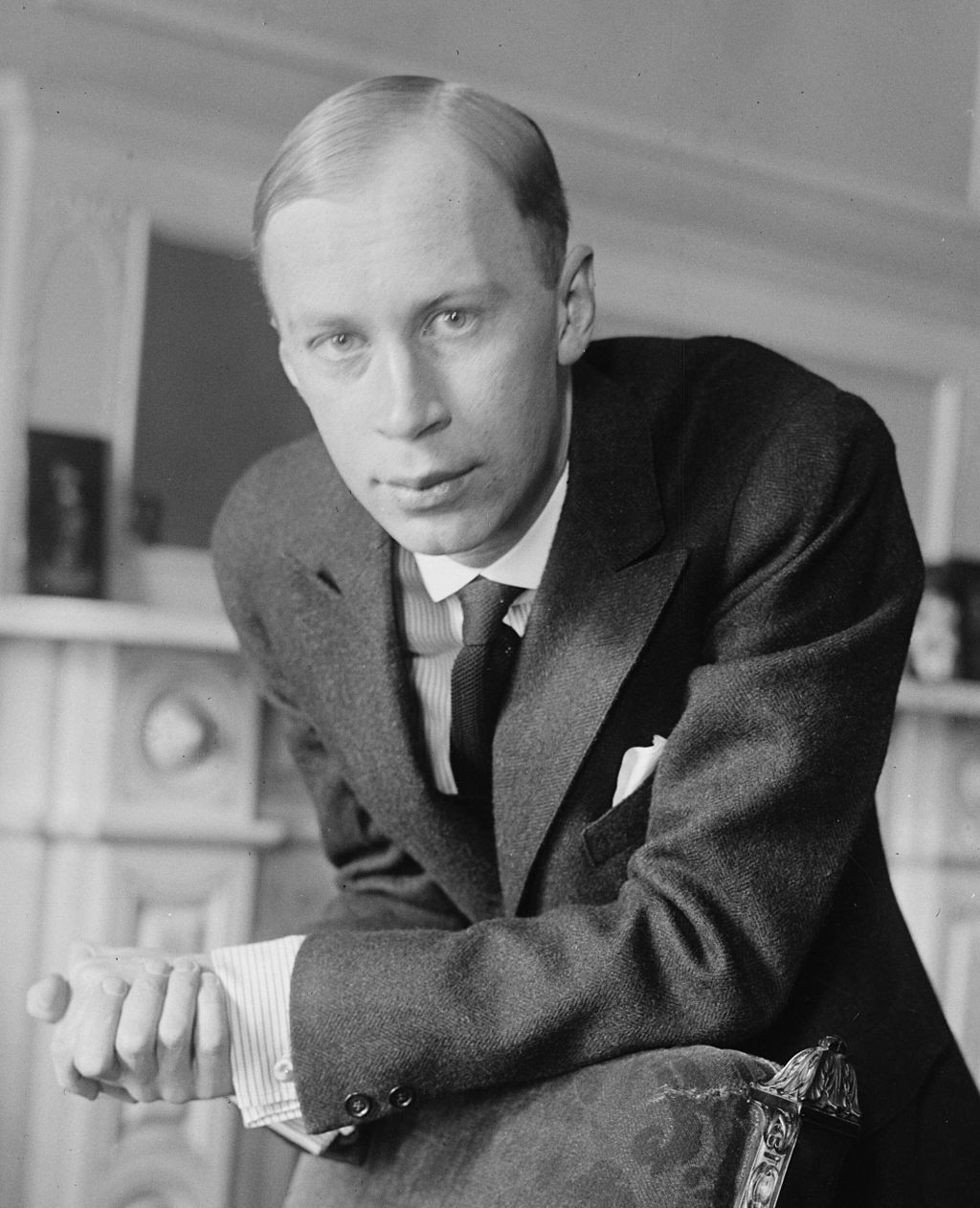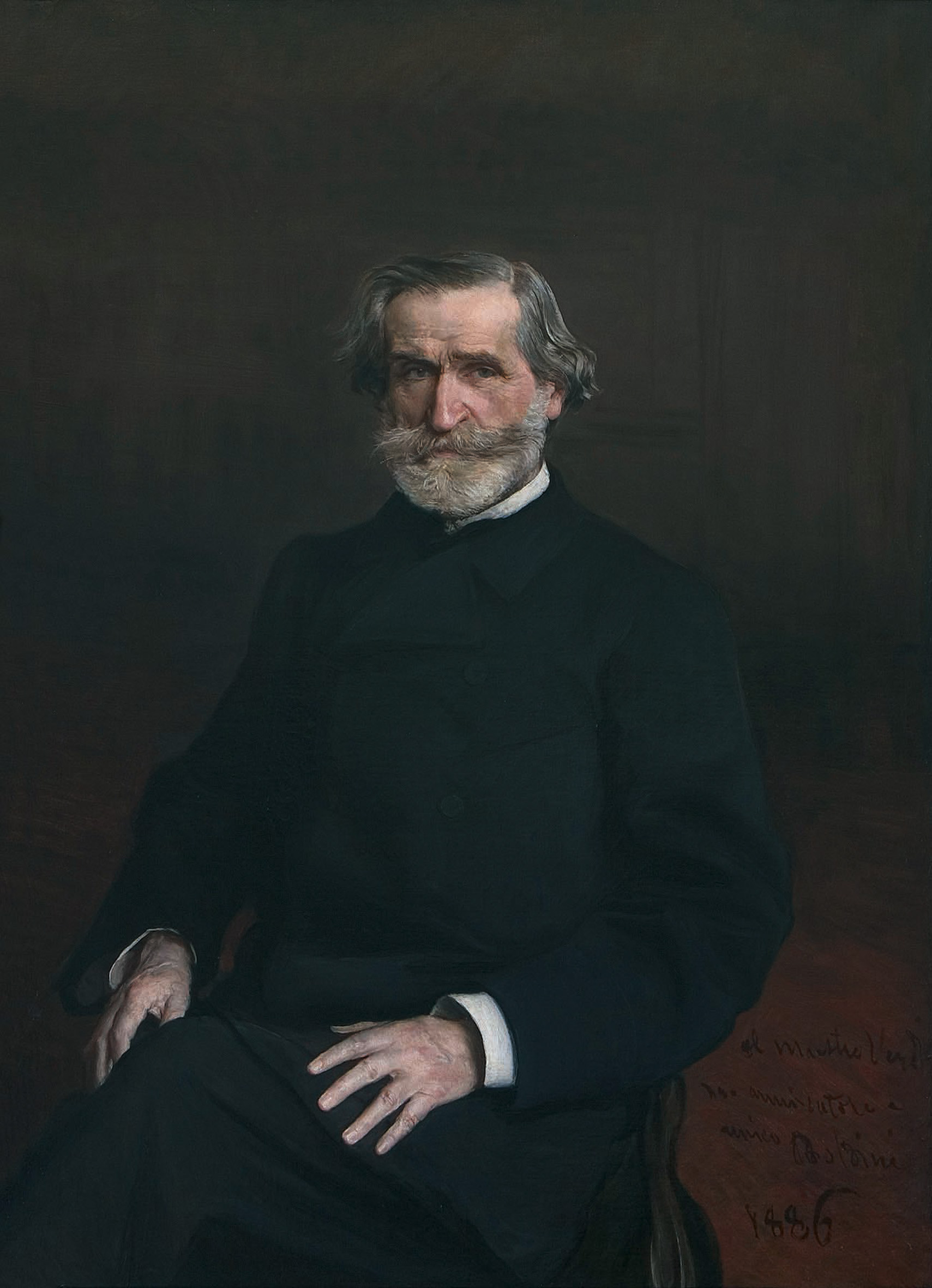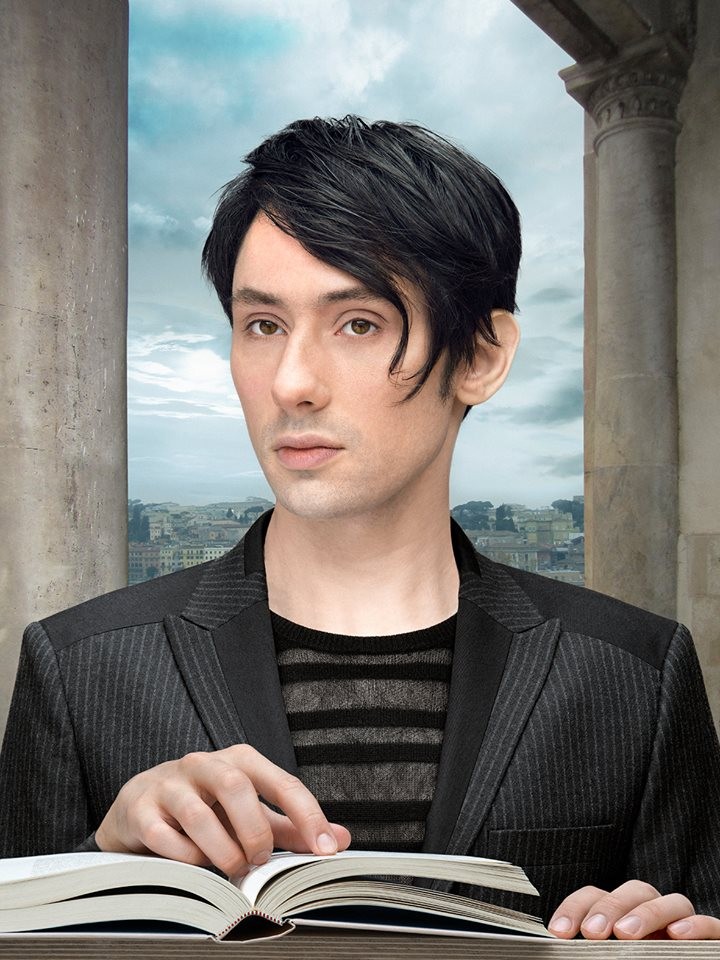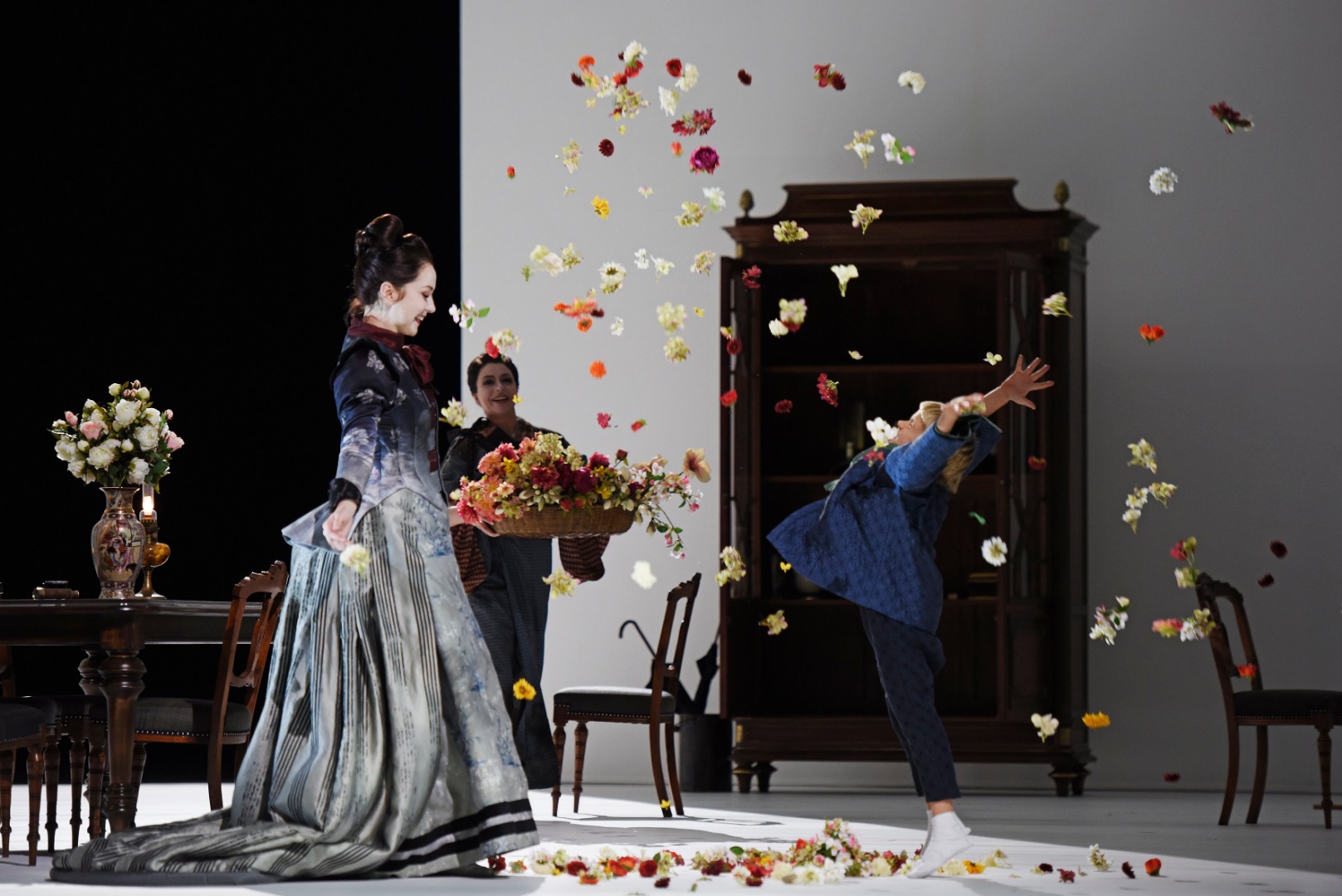Logo courtesy of Opera Philadelphia.
I first notice splashes of color and art when I look at the web page for Opera Philadelphia’s 2019-2020 Season (just take a look at their new logo to the left). Then I notice the variety in the schedule, classical works and hip new offerings. The wealth of creative, artistic expression gushes forth all the way from today’s internet back to the Roman gods. I have become a huge fan of Opera Philadelphia’s annual September festival, now up to Festival O19, and immediately examine its features. O19, cutting-edge and engaging once again, as was O17 and O18, will again fill stages around the city with art, which is to say, life. For an opera fan, it is the place to be, not only to be entertained, but by opera fan response to these innovative offerings, to help determine what opera can be. Each September, Philadelphia becomes the arts capital of the world.
For the third year in a row, Opera Philadelphia has programmed two seasons, its innovative festival in September and a program of classical works in the new year.
l to r: Composers Philip Venables (photo by Dominic M. Mercier, courtesy of Opera Philadelphia); George Frideric Handel (photo of painting by Balthasar Denner, Wikipedia); and Sergei Prokofiev ( image in US Library of Congress, Wikipedia).
Festival O19 (September 18-29)
Denis and Katya (Venables, World Premiere) – Sept 18, 21 (2), 22, 23, 25, 28, 29
Semele (Handel, 1744) – Sept 19, 21, 24, 26, 28
The Love for Three Oranges (Prokofiev, 1921) – Sept 20, 22, 27, 29
Let Me Die (Keckler, World Premiere) – Sept 21, 22, 25, 26, 27, 28
“Curtis in Concert” – Sept 21, 22, 28, 29
Winter/Spring 2020 Season
Verdi’s Requiem (Verdi, 18740) – January 31, February 2
Madame Butterfly (Puccini, 1904) – April 24, 26, 29, May 1, 3
l to r: Creator Joseph Keckler (photo by Frans Franciscus; courtesy of Opera Philadelphia); composer Giuseppe Verdi (photo of portrait by Giovanni Boldini, Wikipedia); composer Giacomo Puccini (studio photograph, Wikipedia).
My personal favorites have changed as a result of reading more about the individual offerings in the O19 Festival. Originally my favored order was Semele, The Love of Three Oranges, and Denis&Katya, but after reading more about them, the order has reversed for me. I am also intrigued by Let Me Die, and hearing the emerging talent from Curtis Institute of Music is always of interest. I offer a few comments on why I find each production appealing.
Denis and Katya (World Premiere) - This is now the opera I am most interested in seeing; I am quite sure it won’t be like anything else I have seen to date. Composer Philip Venables makes operas that “engage with politics, sexuality, gender, and violence”. The librettist is opera director Ted Huffman, a long-time collaborator of Venables; this is the first libretto that Mr. Huffman has written. Together they have created a “documentary opera” to examine the tragic and bizarre deaths of two Russian teenagers played out over the internet; the two runaways streamed live their stand-off with police. While the focus is the lives of the two young people, the underlying theme is how we interact with each other in the age of the internet. Scored for two voices and four cellos, the opera has won an international award for best opera in development, the Fedora - Generali Prize for Opera 2019; this opera is a co-commission with partners Music Theatre Wales and Opéra Orchestre National Montpellier. Venables/Huffman previously collaborated on the award-winning opera, 4.48 Psychosis. (Performed in English and Russian with English subtitles; 70 minutes, no intermission)
Scene from Semelee. Photo by James Darrah; courtesy of Opera Philadelphia.
Semele (1744) –To earn a living, composer George Frideric Handel had to reinvent himself several times in his career as times and tastes changed. After the popularity of his Italian operas in London faded, he turned to writing English oratorios which were in favor, such as his Messiah (1742). In Semele, a lyric soprano showpiece, Handel created scenarios for singers to portray Roman gods and sing beautiful arias in English “to be performed in the manner of an oratorio”, trying, I suppose, to have his operatic English cake and eat it too. OP’s version is said to be “an energetic makeover by visionary director James Darrah”. When I first became interested in opera, I bought a CD recording of Semele because it starred my favorite soprano at the time, Kathleen Battle, and found it delightful – “The Morning Lark”, Endless Pleasure”, and “Myself I Shall Adore” still ring in my ears. It is a special treat now to get to see the opera staged; my thanks to OP for validating my interest. O19’s Semele has Amanda Forsythe as Semele; I listened to a clip of her singing and greatly look forward to hearing her performance. (Performed in English with English subtitles; three hours with a 20 min intermission).
Scene from The Love of Three Oranges. Photo by Michele Borzoni; courtesy of Opera Philadelphia.
The Love for Three Oranges (1921, first performance by Opera Philadelphia) – Sergei Prokofiev is that Russian composer you know is famous for some reason, a ballet (“Romeo and Juliet”), right, a classical work for children (“Peter and the Wolf”)? This opera is now #2 on my want to see list; the more I read about it the more it intrigues me. It is based on a commedia dell’arte play based on a fairytale by the 18th century author, Carlo Gozzi, and Prokofiev’s version is a satirical parody of nineteenth century opera, ala Wagner and Verdi. The music has been praised for its inventiveness and includes a famous march. The original libretto was written in French while Prokofiev was living in the US; he was not well versed in English and believed Americans would not accept Russian; in another twist, it is often performed in English. On the Opera Philadelphia website, the OP advertising staff shamelessly says Oranges is a “zesty” love story of a prince searching for oranges containing princesses, and the staff poses the question, “…will he run out of juice or can he concentrate...”, and in another spot “Orange you glad tickets are still available?” Perhaps a seed of an idea there, but that kind of writing is just the pits. It sounds a little wacky, but an opera that inspires such puns has to be seen. (Performed in English with English subtitles; a little over two hours including a 20 min intermission)
Let Me Die – OP says this is from the mind of bass-baritone and performance artist Joseph Keckler. What is it? It’s called an “aria-logue”, a weaving of death scenes from classic operas into Mr. Keckler’s narrative about life. So, is it a story embellished by great arias? Or is it great arias embellished by a story? And what does it say about death and dying? And about opera? This original production will be performed by Mr. Keckler and a small ensemble (soprano, mezzo-soprano, countertenor, and a Dancer/Actor) accompanied by piano. This work was developed as part of Keckler’s residency at University of Michigan Stamps School of Art & Design and is presented in partnership with Fringe Arts as part of the Fringe Arts Festival. A quote from an interview with Mr. Keckler, “Let Me Die is titled after Monteverdi's “Lasciatemi Morire,” also known as “The Lament of Arianna.” It was among the first arias I sang when I started to study voice. It's a longing for death, an appeal to the gods, after she (Arianna, or Ariadne) has been abandoned on the island of Naxos. And it's the only part of the opera that has survived. So, I like the way in which she is doubly stranded, the way this is a singing fragment. I also like that this is one of the first pieces you learn in classical voice, implying that to learn to sing is to learn to die.” (Still being finalized but expected to be around 90 minutes with no intermission)
“Curtis in Concert” – Young singers, emerging artists from Curtis Institute of Music, including recent graduates, strut their stuff on successive weekends.
The early 2020 season is somewhat abbreviated from previous years. Only two additional works will be produced for the remainder of the season. The past few seasons have included co-sponsored productions between Opera Philadelphia and Curtis Institute of Music. Recent changes in leadership at Curtis have caused that arrangement to be paused. Curtis plans to publish its 2019-2020 season this summer, and OP will help promote those events. Another imbalance worth noting at this point is the gender imbalance in the composer/creator, conductor, and director roles in the coming season. In that regard, let us note that Ksenia Ravvina is the co-Creator and Dramaturg for Denis&Katya and Emily Senturia is its Music Director. Elizabeth Gimbel is the Director and Dramaturg for Let Me Die. OP also reports that three new works by women composers are in development.
Conductor Corrado Rovaris. Photo by Gabello Studios; courtesy of Opera Philadelphia.
Verdi’s Requiem – Requiem by Giuseppe Verdi was written to honor author Alessandro Manzoni, an Italian nationalist icon revered by Verdi, thus a religious mass to honor a hero and support a cause. The conductor is Corrado Rovaris and the soloists are also outstanding, soprano Leah Crocetto, mezzo-soprano Daniela Mack, tenor Evan LeRoy Johnson, and bass In-sung Sim, plus over 100 choristers and 80 instrumentalists. You might hear this monumental requiem called a choral work; it’s more complicated than that. It is highly dramatic; the Dies Irae section is a barn burner. The drama is unsurprising given that it’s Verdi, but it is a Verdi unlike what you have heard before. Here are comments of mine about a performance of the Requiem this past season in DC (also with Ms. Crocetto as a soloist), “You can say what Verdi’s Requiem is, but you can’t say what it’s not. It is a requiem. It is also a beautiful piece of music with equally beautiful choral and soloist parts. It is a religious work and experience. It is dramatic and can be considered an opera or an oratorio.” Regardless, it is a magnificent work of art.
Scene from Madame Butterfly. Photo by Toni Suter; courtesy of Opera Philadelphia.
Madame Butterfly – Giacomo Puccini wrote this opera especially for me. At least, I like to believe that. It is my favorite opera. Do you like tragedy? There is none more gut-ripping than this one. In 1904 Japan, a callous US naval Lt. Pinkerton marries a 15 year-old Geisha, Cio-Cio San, with no intent on remaining married, rather hoping to someday wed a “real-American bride”, while Cio-Cio San believes she has married for life. He returns alone to the US not knowing a child has been conceived. It doesn’t end well, but we are compensated with gorgeous music and beautiful arias by Puccini. Join in the booing of tenor Bryan Hymel who dares to play Pinkerton, the cad; I’m kidding of course, but I have heard Pinkertons booed who gave excellent performances. Rising star soprano Eri Nakamura, herself born in a small village in Japan, will perform in the role of Cio-Cio San. In addition to the personal drama, there are issues of cultural clashes, First World and white privilege, and sex with a minor. OP states, “Director Ted Huffman eloquently unravels Puccini's 115-year-old musical masterpiece for today's audiences, elevating what was once considered a period piece into a modern-day commentary on power dynamics and western exploitation…”. We will have to wait to see what that means, but reviews of Mr. Huffman’s previous productions have praised his “traditionalist approach” for its authenticity in effectively conveying the world’s cruelty, but also the beauty of this extraordinary opera.
As I stated earlier, Festival O19 is the place to be for opera fans, but I’d also like to add that OP’s September festival is a beacon of hope for new opera composers. The classic works to be performed in early 2020 have their enduring appeal.
The Fan Experience: Subscriptions and single tickets are still available for all performances, but my experience has been that tickets, especially for the best seats and smaller venues, can become hard to come by closer to the performance dates. Click on the ‘What’s On’ tab at the top of Opera Philadelphia’s web site for links to each event; the event web sites have information and links to purchase tickets online. On the Festival O19 web page is a grid with all events and dates. A ‘Chat with Guest Services’ link and phone number is at the bottom of each web page, as is a sign up link to get OP email, a good idea if you are a regular opera goer. There is also an Opera Philadelphia app available with much of the same information.
When purchasing tickets, I most often call guest services at 215-732-8400; they are extremely helpful with selecting tickets and getting the best deals when tickets are discounted; they can even help with hotels and restaurant recommendations. Note performances of Denis&Katya are split between two separate casts; make sure your tickets are for the cast you wish to hear. A wide array of venues are used for O19 events; be sure to check the venue for the event you plan to attend.


